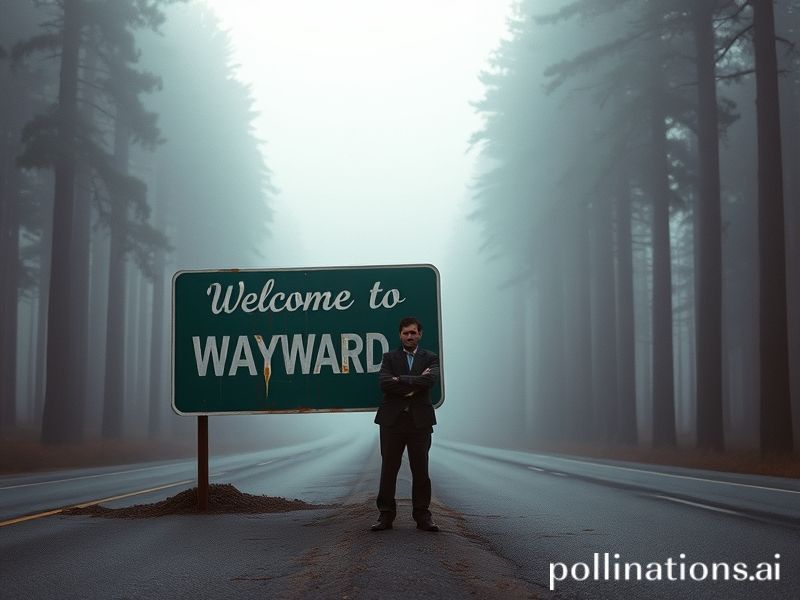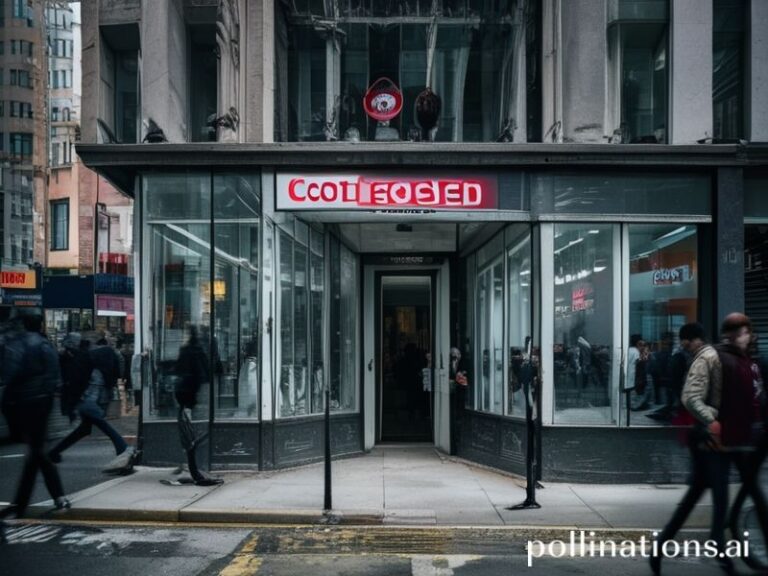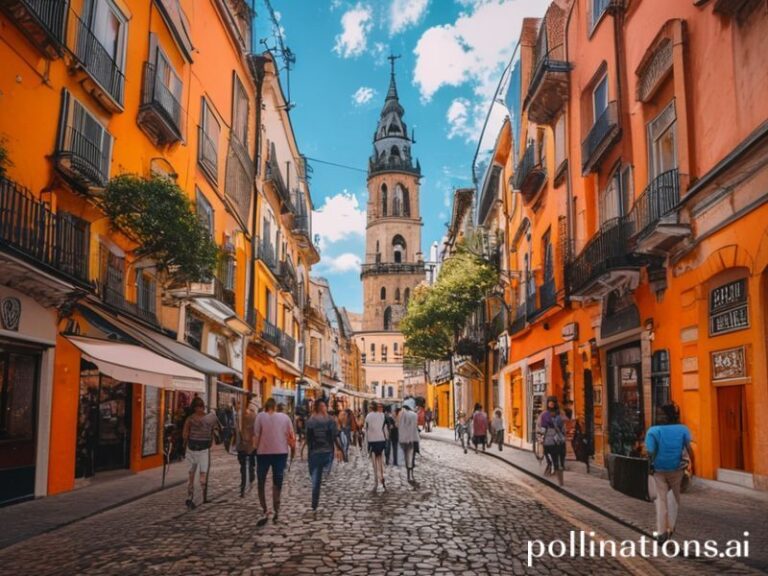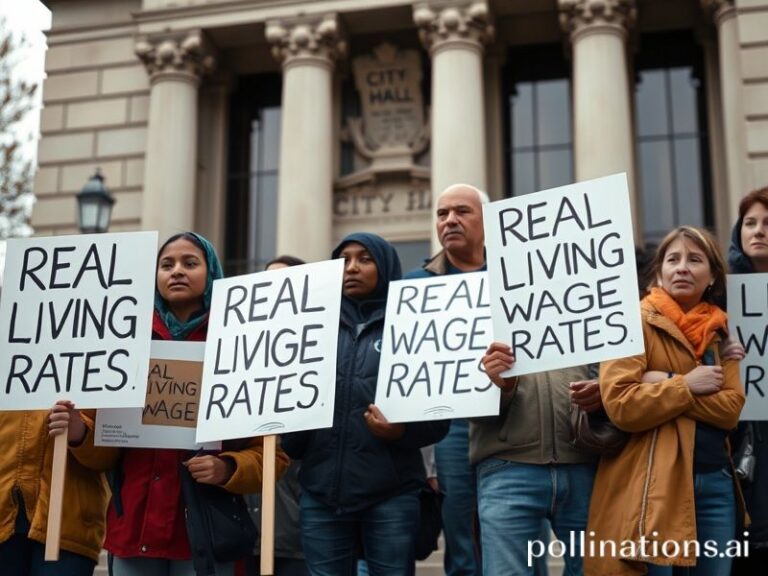Wayward Pines: Idaho’s Time-Warp Town and the Global Race to Hit Snooze on Civilization
Wayward Pines: The Last American Town the Rest of the World Forgot to Notice
By Our Correspondent Somewhere Between Geneva and Regret
It began, as most American fiascos do, with a very expensive marketing slogan: “A Town That Takes You Back.” The brochures never specified how far back—say, 2,000 years and change, give or take a mass extinction. Wayward Pines, Idaho, population 461 on a good census year, has become the planet’s unofficial laboratory for what happens when the phrase “too big to fail” collides with “too small to matter.” While the rest of us were busy doom-scrolling through plague memes and crypto crashes, the town quietly turned itself into a temporal cul-de-sac. The international community, distracted by its own apocalypses, barely blinked.
For readers who have spent the past decade on a diplomatic posting under a rock: Wayward Pines is now sealed behind an electrified fence that would make Ceaușescu blush. Inside, residents are ruled by a sheriff who doubles as morale officer and part-time existential crisis. Outside, the planet has recalibrated to a climate last seen when woolly mammoths still had dental insurance. The town’s governing council—think Davos, but with flannel—claims the arrangement is a “controlled biosphere experiment.” The UN politely files the incident report under “American Eccentricities, Vol. 47.”
But let us zoom out, as cartographers and divorce lawyers like to say. Wayward Pines is not merely Idaho’s latest roadside attraction; it is the distilled essence of every gated community that ever voted to secede from reality. From Singapore’s expat condos to Moscow’s oligarch dachas, the global elite has long practiced voluntary quarantine. Pines simply removed the pretense that the outside world still exists. Call it the logical endpoint of Brexit, if Brexit had better craft beer and mandatory curfews.
The economic implications are, in financial-journalism speak, “bespoke.” Switzerland’s hedge funds now list “Pines Survival Bonds” on the same sheet as water futures and Ukrainian reconstruction debt. Analysts at Deutsche Bank—never a group to miss a dystopia—value the town’s intellectual property (patent-pending cryogenic naps, bespoke eugenics, artisanal propaganda) at €18 billion. That number is, of course, meaningless unless you can actually spend euros in a place where the year is officially 4020. Still, it beats Greek debt.
Meanwhile, Beijing’s Belt and Road Initiative has taken notes. Why pour concrete across Africa when you can simply hibernate until Africa’s climate migrates to you? The Politburo’s think-tanks now draft white papers on “Chrono-Urbanism,” a phrase that sounds like science fiction but translates roughly to “let the Americans beta-test the end of history.” Russian state television airs Wayward Pines tourism ads ironically—irony being the last export Russia hasn’t sanctioned itself.
Europe, ever the responsible older sibling, dispatched a fact-finding mission that promptly got stuck at Denver International Airport for three weeks. When they finally reached the fence, the delegates discovered the town only accepts visas issued by Sheriff Pope, a man whose Wikipedia photo is a mugshot. The EU Parliament declared the situation “concerning,” then adjourned for a six-course lunch. The French ambassador was last seen asking if the local bakery could do a decent pain au chocolat. Priorities.
For the Global South, Wayward Pines is less cautionary tale than dark comedy. Countries that have endured actual time-warps—colonialism, structural adjustment, the IMF’s greatest hits—watch Americans voluntarily lock themselves in a snow globe and struggle not to laugh. Kenya’s Cabinet Secretary for Tourism has floated a satirical ad campaign: “Visit Nairobi, we kept the future running while you were asleep.” It’s only half a joke.
And yet, humanity being what it is, applications to relocate pour in from every corner. Tokyo salarymen see Pines as the ultimate sabbatical. Silicon Valley engineers calculate that two millennia of compound interest might finally make their stock options worthwhile. Even a handful of Scandinavian nations have inquired about franchising opportunities, presumably attracted by the low crime rate and free healthcare administered by whatever passes for a doctor after civilization reboots.
Conclusion: Wayward Pines may be geographically American, but spiritually it belongs to all of us—proof that when the going gets weird, the weird turn pro and build a fence. The town is the world’s most honest mirror: we don’t want to fix the future; we want to sleep until someone else does. Until then, the lights stay on inside the bubble, the rest of the planet flickers outside, and the human race continues its grand tradition of innovating new ways to avoid itself. Sweet dreams, everybody. Set your alarm for the next epoch.







